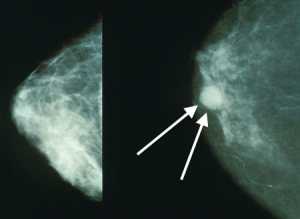Adjuvant Therapy in Stage IIIA Melanoma: Cost vs Benefit of Gene Profiling
Tumor-Informed ctDNA Test Signatera Evaluates Immunotherapy Response Across Different Solid Tumors
Hope for Rare Neuropathy By Targeting Specific Autoantibodies
 Pascal Hänggi, PhD
Chief Scientific Officer
Polyneuron Pharmaceuticals
MedicalResearch.com: What is the background for this study?
Response: Anti-MAG neuropathy is a rare form of acquired demyelinating neuropathy. The disease onset normally presents after the age of 50 years and is 2.7 times more frequent in men than in women, with a prevalence of about 1 in 100,000. It is caused by the production of monoclonal anti-MAG IgM antibodies that recognize the HNK-1 epitope. The myelin-associated glycoprotein MAG is a mediator for the formation and maintenance of the myelin sheaths. There is strong evidence that the binding and deposition of anti-MAG IgM autoantibodies on myelin sheath is responsible for the demyelination, which clinically manifests itself as a peripheral neuropathy affecting primarily sensory nerves. However, the causes and the exact mechanisms behind the expansion of anti-MAG IgM producing B-cell and plasma cell clones are not fully understood.
Most off-label treatments aim to reduce pathogenic autoantibody titers by depleting autoantibody-producing B cell clones which interfere with antibody-effector mechanisms, or physically remove autoantibodies from the circulation. Most frequently, the anti-CD20 monoclonal antibody rituximab is used to treat anti-MAG neuropathy patients. However, all of these treatment options often lack of selectivity, efficiency, or can induce severe adverse effects in some patients.
Polyneuron has designed PN-1007 to highly selectively target the IgM autoantibodies that cause anti-MAG neuropathy. PN-1007 is a glycopolymer that mimics the natural HNK-1 carbohydrate epitope found on myelin of peripheral nerves and binds to the circulating disease-causing antibodies. By eliminating these pathogenic antibodies, PN-1007 may protect the integrity of the neuronal myelin sheaths of anti-MAG neuropathy patients. (more…)
Pascal Hänggi, PhD
Chief Scientific Officer
Polyneuron Pharmaceuticals
MedicalResearch.com: What is the background for this study?
Response: Anti-MAG neuropathy is a rare form of acquired demyelinating neuropathy. The disease onset normally presents after the age of 50 years and is 2.7 times more frequent in men than in women, with a prevalence of about 1 in 100,000. It is caused by the production of monoclonal anti-MAG IgM antibodies that recognize the HNK-1 epitope. The myelin-associated glycoprotein MAG is a mediator for the formation and maintenance of the myelin sheaths. There is strong evidence that the binding and deposition of anti-MAG IgM autoantibodies on myelin sheath is responsible for the demyelination, which clinically manifests itself as a peripheral neuropathy affecting primarily sensory nerves. However, the causes and the exact mechanisms behind the expansion of anti-MAG IgM producing B-cell and plasma cell clones are not fully understood.
Most off-label treatments aim to reduce pathogenic autoantibody titers by depleting autoantibody-producing B cell clones which interfere with antibody-effector mechanisms, or physically remove autoantibodies from the circulation. Most frequently, the anti-CD20 monoclonal antibody rituximab is used to treat anti-MAG neuropathy patients. However, all of these treatment options often lack of selectivity, efficiency, or can induce severe adverse effects in some patients.
Polyneuron has designed PN-1007 to highly selectively target the IgM autoantibodies that cause anti-MAG neuropathy. PN-1007 is a glycopolymer that mimics the natural HNK-1 carbohydrate epitope found on myelin of peripheral nerves and binds to the circulating disease-causing antibodies. By eliminating these pathogenic antibodies, PN-1007 may protect the integrity of the neuronal myelin sheaths of anti-MAG neuropathy patients. (more…)KRAS Mutant Cancers: Phase I study RAF-MEK inhibitor and FAK inhibitor defactinib in an intermittent dosing schedule
Personalized Medicine: Caris Life Sciences Offers DNA and RNA Cancer Profiling
New Gene Regions Linked to Melanoma Risk Identified
CRISPR-Edited Stem Cells Cured Diabetes in a Mouse Model
Breast Cancer: Risk-Adapted Starting Age of Screening for Relatives of Patients
Americans Support Gene Therapies Even If They Cost More

MedicalResearch.com Interview with:
Wayne Winegarden, Ph.D.
Director, Center for Medical Economics and Innovation
Pacific Research Institute
MedicalResearch.com: What is the background for this poll? Would you tell us a little about the Center for Medical Economics and Innovation?
Response: Recent press reports have focused on how extensive innovative gene therapies can be. PRI was interested in learning where Americans stand on these cures of the future, and commission a new national opinion survey to find out.
The Center for Medical Economics and Innovation is a new center launched by PRI this spring to research and advance policies showing how a thriving biomedical and pharmaceutical sector benefits both patients and economic growth. Medical innovation is an important driver of economic growth, responsible for over $1.3 trillion in economic activity each year. As the Milken Institute has found, every job in the biomedical sphere supports another 3.3 jobs elsewhere in the economy.
Among the activities of the Center – which can be accessed at www.medecon.org – are providing free-market analysis to evaluate current policy proposals, producing easy-to-understand data and analysis on current trends in medical science, breaking down complex issues like pharmaceutical and biomedical pricing structures, and demonstrating the benefits that market-based reforms can offer patients and the U.S. health care system. (more…)
Artificial Antibody Knocks Out Kidney Inflammation
Diabetic Atherosclerosis Management Can Be Personalized Using Coronary Artery Calcium Score
 Dr. Shaista Malik MD PhD MPH
Director of Samueli Center For Integrative Medicine
Assistant Professor, School of Medicine
University of California, Irvine
MedicalResearch.com: What is the background for this study? What are the main findings?
Response: Having diabetes has been considered to be a risk equivalent to already had a myocardial infarction for predicting future cardiovascular events. We were interested in testing whether further risk stratification in those with diabetes and metabolic syndrome, using coronary artery calcium (CAC), would result in improved prediction of cardiovascular events.
We found that CAC score was associated with incident coronary heart disease and cardiovascular disease more than a decade after the scoring was performed. We also found that even after we controlled for the duration of diabetes (of 10 years or more), insulin use, or hemoglobin A1c level, coronary artery calcium remained a predictor of cardiovascular events.
(more…)
Dr. Shaista Malik MD PhD MPH
Director of Samueli Center For Integrative Medicine
Assistant Professor, School of Medicine
University of California, Irvine
MedicalResearch.com: What is the background for this study? What are the main findings?
Response: Having diabetes has been considered to be a risk equivalent to already had a myocardial infarction for predicting future cardiovascular events. We were interested in testing whether further risk stratification in those with diabetes and metabolic syndrome, using coronary artery calcium (CAC), would result in improved prediction of cardiovascular events.
We found that CAC score was associated with incident coronary heart disease and cardiovascular disease more than a decade after the scoring was performed. We also found that even after we controlled for the duration of diabetes (of 10 years or more), insulin use, or hemoglobin A1c level, coronary artery calcium remained a predictor of cardiovascular events.
(more…)TeloView Measures Genomic Stability To Predict Disease Aggressiveness
 Jason Flowerday, CEO
Director of 3D Signatures
MedicalResearch.com: What is the background for 3D Signatures?
Response: 3D Signatures, and its clinical lab tests, which incorporate its proprietary TeloViewTM software analytics, is the culmination of over 20 years of ground-breaking research conducted by Dr. Sabine Mai and her colleagues. It is the only technology in the world that quantifies genomic instability, which is the hallmark of cancer and other proliferative diseases at the whole-cell level.
By measuring the degree of genomic instability from different tissues, TeloViewTM has produced clinically actionable distinctions in the stage of disease, rate of progression of disease, drug efficacy, and drug toxicity. The technology is well developed and supported by 22 clinical studies on over 2,000 patients on 13 different cancers including Alzheimer’s disease. The results have been exceptional and represent a universal biomarker platform across all disease areas that the company has investigated to date.
(more…)
Jason Flowerday, CEO
Director of 3D Signatures
MedicalResearch.com: What is the background for 3D Signatures?
Response: 3D Signatures, and its clinical lab tests, which incorporate its proprietary TeloViewTM software analytics, is the culmination of over 20 years of ground-breaking research conducted by Dr. Sabine Mai and her colleagues. It is the only technology in the world that quantifies genomic instability, which is the hallmark of cancer and other proliferative diseases at the whole-cell level.
By measuring the degree of genomic instability from different tissues, TeloViewTM has produced clinically actionable distinctions in the stage of disease, rate of progression of disease, drug efficacy, and drug toxicity. The technology is well developed and supported by 22 clinical studies on over 2,000 patients on 13 different cancers including Alzheimer’s disease. The results have been exceptional and represent a universal biomarker platform across all disease areas that the company has investigated to date.
(more…)Frequency of Retinal Screening in Diabetes May Be Tailored to Individual
Genetic Variant of p53 Gene May Explain Increased Breast Cancer Risk in African American Women
Precision Therapy In Early Stages For Triple Negative Breast Cancer
 Associate Professor
Department of Physiology
Michigan State University
East Lansing, MI
MedicalResearch.com: What is the background for this study?
Response: Of the various types of breast cancer, triple negative breast cancer (lacking estrogen receptor, progesterone receptor and HER2) has the worst outcome and is largely limited to chemotherapy for treatment. Other types can be treated with personalized medicine, resulting in better outcome. For instance, a HER2+ve breast cancer can be treated with Herceptin, which targets HER2 itself. The fact that triple negative breast cancer lacks these sort of targeted treatments presents a clear need in breast cancer therapy.
The goal of this study was to bring together our computational work using large databases from breast cancer with research into therapeutic options. Essentially we wanted to ask if we could use patterns in what genes were being expressed to predict optimal therapy for triple negative breast cancer. (more…)
Associate Professor
Department of Physiology
Michigan State University
East Lansing, MI
MedicalResearch.com: What is the background for this study?
Response: Of the various types of breast cancer, triple negative breast cancer (lacking estrogen receptor, progesterone receptor and HER2) has the worst outcome and is largely limited to chemotherapy for treatment. Other types can be treated with personalized medicine, resulting in better outcome. For instance, a HER2+ve breast cancer can be treated with Herceptin, which targets HER2 itself. The fact that triple negative breast cancer lacks these sort of targeted treatments presents a clear need in breast cancer therapy.
The goal of this study was to bring together our computational work using large databases from breast cancer with research into therapeutic options. Essentially we wanted to ask if we could use patterns in what genes were being expressed to predict optimal therapy for triple negative breast cancer. (more…)Biomarker May Predict Response to Common Leukemia Treatment
Monitoring Circulating Tumor Cells May Further Personalized Cancer Treatment
Cross Border Pharmaceutical Alliances Present Challenges and Opportunities
Targeted Melanoma Panel Identifies Genetic Subsets of Melanoma
 MedicalResearch.com Interview with:
Melissa Wilson, MD, PhD
Assisstant Professor
Perlmutter Cancer Center
NYU Langone Medical Center
New York, NY
Medical Research: What is the background for this study? What are the main findings?
Dr. Wilson: Metastatic cutaneous melanoma is an extremely aggressive form of skin cancer. Traditionally, it has been characterized by clinicopathologic characteristics. More recently, melanoma tumors have also been stratified by common somatic mutations for which targeted therapies have been developed or are under investigation, including BRAF, NRAS and KIT. In addition to somatic mutations, aberrant intracellular signaling pathways and cell cycle disruption contribute to melanoma pathogenesis. Indeed, recent next generation sequencing studies have identified a number of new genes involved in melanomagenesis. A comprehensive evaluation and understanding of concurrent and mutually exclusive mutations in tumors has been lacking. Therefore, we developed a comprehensive custom targeted capture of 108 genes previously implicated in melanoma pathogenesis. We used the targeted panel to perform massively parallel sequencing on 94 well-established human melanoma cell lines, 67 patient-derived xenografts (PDX), and 5 cell lines made from PDX, all untreated.
Samples were clustered based on deleterious mutations. Eighty-three percent of samples had deleterious mutations in the MAPK signaling pathway (including BRAF, RAS) and NF1. Ten percent of samples had PI3K pathway mutations which were predominantly associated with BRAF mutations. TP53 was found to be mutated in 24% of the samples and were also associated with mutations in the MAPK pathway. Mutations in chromatin remodeling genes were mutually exclusive with each other, but were associated with BRAF and NRAS mutations. Of particular interest, five of the 10 NF1mutated samples harbored likely deleterious mutations in MAP3K5 or MAP3K9, suggesting the potential involvement of JNK signal transduction pathway in a cohort of samples.
(more…)
MedicalResearch.com Interview with:
Melissa Wilson, MD, PhD
Assisstant Professor
Perlmutter Cancer Center
NYU Langone Medical Center
New York, NY
Medical Research: What is the background for this study? What are the main findings?
Dr. Wilson: Metastatic cutaneous melanoma is an extremely aggressive form of skin cancer. Traditionally, it has been characterized by clinicopathologic characteristics. More recently, melanoma tumors have also been stratified by common somatic mutations for which targeted therapies have been developed or are under investigation, including BRAF, NRAS and KIT. In addition to somatic mutations, aberrant intracellular signaling pathways and cell cycle disruption contribute to melanoma pathogenesis. Indeed, recent next generation sequencing studies have identified a number of new genes involved in melanomagenesis. A comprehensive evaluation and understanding of concurrent and mutually exclusive mutations in tumors has been lacking. Therefore, we developed a comprehensive custom targeted capture of 108 genes previously implicated in melanoma pathogenesis. We used the targeted panel to perform massively parallel sequencing on 94 well-established human melanoma cell lines, 67 patient-derived xenografts (PDX), and 5 cell lines made from PDX, all untreated.
Samples were clustered based on deleterious mutations. Eighty-three percent of samples had deleterious mutations in the MAPK signaling pathway (including BRAF, RAS) and NF1. Ten percent of samples had PI3K pathway mutations which were predominantly associated with BRAF mutations. TP53 was found to be mutated in 24% of the samples and were also associated with mutations in the MAPK pathway. Mutations in chromatin remodeling genes were mutually exclusive with each other, but were associated with BRAF and NRAS mutations. Of particular interest, five of the 10 NF1mutated samples harbored likely deleterious mutations in MAP3K5 or MAP3K9, suggesting the potential involvement of JNK signal transduction pathway in a cohort of samples.
(more…)Genetic Diversity of Pancreatic Cancer May Lead To Therapeutic Targets
 MedicalResearch.com Interview with:
Dr. Agnieszka Witkiewicz MD
Associate Professor of Pathology
Harold C. Simmons Comprehensive Cancer Center
UT Southwestern
MedicalResearch: What is the background for this study?
Dr. Witkiewicz: Pancreatic ductal adenocarcinoma (PDA) has a dismal prognosis, with a five year survival rate of approximately 6%. This poor outcome is related to multiple factors, including the relatively late stage of diagnosis, many patients presenting with unresectable disease, and therapy recalcitrance resulting in disease recurrence in spite of operable disease and systemic therapy. Thus far, insights into how to target the treatment of Pancreatic ductal adenocarcinoma have remained unclear in spite of prior sequencing efforts.
MedicalResearch: What are the main findings?
Dr. Witkiewicz: The underlying critical finding of the study was that Pancreatic ductal adenocarcinoma is genetically diverse and that, in principle, this diversity could be exploited for the treatment of disease. Specifically, many cases harbored deregulation in pathways that are the target for drug development. For example, we identified cases that were driven by BRAF V600E and that were sensitive to the FDA approved drug Vemurafenib. Similarly, multiple cases harbored defects in DNA repair processes that impart sensitivity to select chemotherapeutic agents and PARP inhibitors. Common pathway deregulation was observed in reference to beta-catenin, notch, hedgehog, chromatin remodeling, and cell cycle regulatory pathways that are all targets for therapeutic intervention.
(more…)
MedicalResearch.com Interview with:
Dr. Agnieszka Witkiewicz MD
Associate Professor of Pathology
Harold C. Simmons Comprehensive Cancer Center
UT Southwestern
MedicalResearch: What is the background for this study?
Dr. Witkiewicz: Pancreatic ductal adenocarcinoma (PDA) has a dismal prognosis, with a five year survival rate of approximately 6%. This poor outcome is related to multiple factors, including the relatively late stage of diagnosis, many patients presenting with unresectable disease, and therapy recalcitrance resulting in disease recurrence in spite of operable disease and systemic therapy. Thus far, insights into how to target the treatment of Pancreatic ductal adenocarcinoma have remained unclear in spite of prior sequencing efforts.
MedicalResearch: What are the main findings?
Dr. Witkiewicz: The underlying critical finding of the study was that Pancreatic ductal adenocarcinoma is genetically diverse and that, in principle, this diversity could be exploited for the treatment of disease. Specifically, many cases harbored deregulation in pathways that are the target for drug development. For example, we identified cases that were driven by BRAF V600E and that were sensitive to the FDA approved drug Vemurafenib. Similarly, multiple cases harbored defects in DNA repair processes that impart sensitivity to select chemotherapeutic agents and PARP inhibitors. Common pathway deregulation was observed in reference to beta-catenin, notch, hedgehog, chromatin remodeling, and cell cycle regulatory pathways that are all targets for therapeutic intervention.
(more…)Mobile Health Technologies Will Change Chronic Disease Management
 MedicalResearch.com Interview with:
Ryan Jeffrey Shaw, PhD, MS, RN
Assistant Professor School of Nursing
Center for Health Informatics
Center for Precision Medicine
Duke University
Medical Research: What is the background for this study? What are the main findings?
Dr. Shaw: Primary care delivery revolves around a series of episodes, rather than functioning as a continuum. When patients come to a clinic data on their health is collected as a single data point. This model neglects potentially meaningful data from patients’ daily lives and results in less informed treatment and scheduling of follow-up visits. Lack of meaningful data further blinds clinicians to patients’ health outside of the clinic and can contribute to unnecessary emergency department visits and hospitalizations.
Personalized care through mobile health technologies inspires the transition from isolated snapshots based on serial visits to real time and trended data. By using technologies from cell phones to wearable sensors, providers have the ability to monitor patients and families outside of the traditional office visit.
(more…)
MedicalResearch.com Interview with:
Ryan Jeffrey Shaw, PhD, MS, RN
Assistant Professor School of Nursing
Center for Health Informatics
Center for Precision Medicine
Duke University
Medical Research: What is the background for this study? What are the main findings?
Dr. Shaw: Primary care delivery revolves around a series of episodes, rather than functioning as a continuum. When patients come to a clinic data on their health is collected as a single data point. This model neglects potentially meaningful data from patients’ daily lives and results in less informed treatment and scheduling of follow-up visits. Lack of meaningful data further blinds clinicians to patients’ health outside of the clinic and can contribute to unnecessary emergency department visits and hospitalizations.
Personalized care through mobile health technologies inspires the transition from isolated snapshots based on serial visits to real time and trended data. By using technologies from cell phones to wearable sensors, providers have the ability to monitor patients and families outside of the traditional office visit.
(more…)Germline Mutations Studied In Patients With Family History Of Early Onset Colon Cancer
 MedicalResearch.com Interview with:
Matthew B. Yurgelun, MD
Instructor in Medicine
Harvard Medical School
Medical Research: What is the background for this study? What are the main findings?
Dr. Yurgelun: Germline mutations in the TP53 gene are linked to Li-Fraumeni syndrome, which is an inherited syndrome associated with a 73-100% lifetime risk of cancer. Classically, cancers linked to Li-Fraumeni syndrome include early-onset breast cancer, leukemias, soft tissue sarcomas, brain cancer, and adrenocortical cancer, although recent data have shown an increased risk of colorectal cancer as well. Our study’s primary aim was to determine the frequency of germline TP53 mutations in patients with early-onset colorectal cancer.
We studied 457 patients from the multinational Colon Cancer Family Registry who were diagnosed with colorectal cancer at age 40 or younger, and found that 1.3% carried a germline alteration in the TP53 gene. None of these individuals had personal or family histories of cancer that fulfilled clinical criteria for Li-Fraumeni syndrome. (more…)
MedicalResearch.com Interview with:
Matthew B. Yurgelun, MD
Instructor in Medicine
Harvard Medical School
Medical Research: What is the background for this study? What are the main findings?
Dr. Yurgelun: Germline mutations in the TP53 gene are linked to Li-Fraumeni syndrome, which is an inherited syndrome associated with a 73-100% lifetime risk of cancer. Classically, cancers linked to Li-Fraumeni syndrome include early-onset breast cancer, leukemias, soft tissue sarcomas, brain cancer, and adrenocortical cancer, although recent data have shown an increased risk of colorectal cancer as well. Our study’s primary aim was to determine the frequency of germline TP53 mutations in patients with early-onset colorectal cancer.
We studied 457 patients from the multinational Colon Cancer Family Registry who were diagnosed with colorectal cancer at age 40 or younger, and found that 1.3% carried a germline alteration in the TP53 gene. None of these individuals had personal or family histories of cancer that fulfilled clinical criteria for Li-Fraumeni syndrome. (more…)Gene Signature May Predict Risk of Metastases and Death From Melanoma
 MedicalResearch.com Interview with:
Pedram Gerami MD
Associate Professor of Dermatology and Pathology
Northwestern University
MedicalResearch: What is the background for this study? What are the main findings?
Dr. Gerami: The outcomes for patients with cutaneous melanoma are highly variable and there are limitations to the conventional staging system for melanoma. For example while the status of the sentinel lymph node biopsy is considered the strongest prognosticator, approximately 2/3 of cutaneous melanoma patients that ultimately die from their melanoma will have a negative sentinel lymph node biopsy result. In this study we showed that using a technique known as mRNA expression profiling to determine which genes are highly active and which are not that a molecular prognostic assay with accuracy could be developed. This assay can accurately classify patients based on their gene signature as having a high or low risk for metastasis and death from their melanoma. In an independent validation cohort, patients with a class I or low risk signature had a 5 year disease free survival rate of 97% while those with a class II or high risk signature had a 5 year disease free survival rate of only 31%.
(more…)
MedicalResearch.com Interview with:
Pedram Gerami MD
Associate Professor of Dermatology and Pathology
Northwestern University
MedicalResearch: What is the background for this study? What are the main findings?
Dr. Gerami: The outcomes for patients with cutaneous melanoma are highly variable and there are limitations to the conventional staging system for melanoma. For example while the status of the sentinel lymph node biopsy is considered the strongest prognosticator, approximately 2/3 of cutaneous melanoma patients that ultimately die from their melanoma will have a negative sentinel lymph node biopsy result. In this study we showed that using a technique known as mRNA expression profiling to determine which genes are highly active and which are not that a molecular prognostic assay with accuracy could be developed. This assay can accurately classify patients based on their gene signature as having a high or low risk for metastasis and death from their melanoma. In an independent validation cohort, patients with a class I or low risk signature had a 5 year disease free survival rate of 97% while those with a class II or high risk signature had a 5 year disease free survival rate of only 31%.
(more…)Study Examines Use Of Oncotype DX® Breast Cancer Test In Medicare Patients
 MedicalResearch.com Interview with:
Dr. Michaela A. Dinan Ph.D
Department of Medicine
Duke University
Medical Research: What is the background for this study? What are the main findings?
Dr. Dinan: We wanted to examine how Oncotype DX® Breast Cancer Test (ODX) was being used in real-world practice at the population level. ODX has been examined in clinical trials and limited academic settings but we know that these patients are often younger, have fewer medical comorbidities, and do not necessarily accurately reflect the majority patients with cancer. In our study, we observed that Oncotype DX® Breast Cancer Test was being used predominately in accordance with guidelines which recommend the test for women with estrogen-receptor positive, disease. We also looked just at women under the age of 70 who met guideline criteria for testing, because this population would include those women who were more likely to be chemotherapy candidates, and we saw a rapid uptake of the test between 2005 and 2009, with use of the test increasing from 8% to 39%.
(more…)
MedicalResearch.com Interview with:
Dr. Michaela A. Dinan Ph.D
Department of Medicine
Duke University
Medical Research: What is the background for this study? What are the main findings?
Dr. Dinan: We wanted to examine how Oncotype DX® Breast Cancer Test (ODX) was being used in real-world practice at the population level. ODX has been examined in clinical trials and limited academic settings but we know that these patients are often younger, have fewer medical comorbidities, and do not necessarily accurately reflect the majority patients with cancer. In our study, we observed that Oncotype DX® Breast Cancer Test was being used predominately in accordance with guidelines which recommend the test for women with estrogen-receptor positive, disease. We also looked just at women under the age of 70 who met guideline criteria for testing, because this population would include those women who were more likely to be chemotherapy candidates, and we saw a rapid uptake of the test between 2005 and 2009, with use of the test increasing from 8% to 39%.
(more…)Personalized Medicine: Tailoring Surgical Approach To Ovarian Cancer
 MedicalResearch.com Interview with:
Dr. Anil Sood MD
Professor of Gynecologic Oncology and Reproductive Medicine
The University of Texas MD Anderson Cancer Center
Medical Research: What is the background for this study? What are the main findings?
MedicalResearch: What is the background for this approach? What are the main findings?
Dr. Sood: The background involves several different issues: management approaches have varied quite a bit across the US; definition of “optimal” surgery and rates of complete surgical removal of tumor (R0) have also varied. It is quite apparent that patients who benefit the most from surgery upfront are those who have removal of tumor resection. To address these issues, we have implanted a much more personalized approach whereby patients with suspected advanced ovarian cancer undergo laparoscopic assessment using a validated scoring system (based on the pattern and extent of disease noted during laparoscopic assessment); patients with a score <8 undergo upfront debulking surgery and those with a score ≥8 receive neoadjuvant chemotherapy followed by surgery after 3-4 cycles. To date, this program has been fully implemented as part of the Moonshot Program at M.D. Anderson. This program has already resulted in several benefits – for example, prior to this algorithm being put into place among all patients with suspected advanced ovarian cancer, around 20% would have removal of tumor resection; after the implementation of the algorithm, of those going to upfront debulking surgery (after laparoscopic assessment), almost 85% of times removal of tumor resection can be achieved. Also, this method of treatment is allowing for new and innovative clinical trial designs. (more…)
MedicalResearch.com Interview with:
Dr. Anil Sood MD
Professor of Gynecologic Oncology and Reproductive Medicine
The University of Texas MD Anderson Cancer Center
Medical Research: What is the background for this study? What are the main findings?
MedicalResearch: What is the background for this approach? What are the main findings?
Dr. Sood: The background involves several different issues: management approaches have varied quite a bit across the US; definition of “optimal” surgery and rates of complete surgical removal of tumor (R0) have also varied. It is quite apparent that patients who benefit the most from surgery upfront are those who have removal of tumor resection. To address these issues, we have implanted a much more personalized approach whereby patients with suspected advanced ovarian cancer undergo laparoscopic assessment using a validated scoring system (based on the pattern and extent of disease noted during laparoscopic assessment); patients with a score <8 undergo upfront debulking surgery and those with a score ≥8 receive neoadjuvant chemotherapy followed by surgery after 3-4 cycles. To date, this program has been fully implemented as part of the Moonshot Program at M.D. Anderson. This program has already resulted in several benefits – for example, prior to this algorithm being put into place among all patients with suspected advanced ovarian cancer, around 20% would have removal of tumor resection; after the implementation of the algorithm, of those going to upfront debulking surgery (after laparoscopic assessment), almost 85% of times removal of tumor resection can be achieved. Also, this method of treatment is allowing for new and innovative clinical trial designs. (more…)MAPT locus on Chromosome 17 Links Parkinson’s and Alzheimer’s Diseases
 MedicalResearch.com Interview with:
Dr. Rahul S. Desikan MD, PhD
Department of Radiologoy
University of California, San Diego School of Medicine
Medical Research: What is the background for this study? What are the main findings?
Dr. Desikan: The MAPT gene encodes the tau protein, which plays an integral role in Alzheimer's disease (AD) neurodegeneration. Though a number of studies have investigated this issue, the role of the MAPT gene in Alzheimer's disease is still unclear. In contrast, a number of studies have found a robust association between MAPT and increased risk for other 'tauopathies' like Parkinson's disease (PD). In our study, rather than evaluating all possible genetic loci, we only assessed shared genetic variants between Alzheimer's disease and PD. By using this type of approach, we were able to increase our statistical power for gene discovery in Alzheimer's disease.
We found genetic overlap between Alzheimer's disease and Parkinson's disease at a locus on chromosome 17 within the MAPT region. Our findings demonstrate that this MAPT associated locus increases risk for Alzheimer's disease, correlates with gene expression of MAPT and is associated with brain atrophy of the entorhinal cortex and hippocampus on longitudinal MRI scans.
(more…)
MedicalResearch.com Interview with:
Dr. Rahul S. Desikan MD, PhD
Department of Radiologoy
University of California, San Diego School of Medicine
Medical Research: What is the background for this study? What are the main findings?
Dr. Desikan: The MAPT gene encodes the tau protein, which plays an integral role in Alzheimer's disease (AD) neurodegeneration. Though a number of studies have investigated this issue, the role of the MAPT gene in Alzheimer's disease is still unclear. In contrast, a number of studies have found a robust association between MAPT and increased risk for other 'tauopathies' like Parkinson's disease (PD). In our study, rather than evaluating all possible genetic loci, we only assessed shared genetic variants between Alzheimer's disease and PD. By using this type of approach, we were able to increase our statistical power for gene discovery in Alzheimer's disease.
We found genetic overlap between Alzheimer's disease and Parkinson's disease at a locus on chromosome 17 within the MAPT region. Our findings demonstrate that this MAPT associated locus increases risk for Alzheimer's disease, correlates with gene expression of MAPT and is associated with brain atrophy of the entorhinal cortex and hippocampus on longitudinal MRI scans.
(more…)Personalized Advice May Help Risky Drinkers Reduce Alcohol
 MedicalResearch.com Interview with:
Sean M. Murphy, Ph.D.
Assistant Professor Department of Health Policy & Administration
Washington State University
Medical Research: What is the background for this study? What are the main findings?
Dr. Murphy: Professional healthcare advice regarding excessive alcohol consumption has been shown to reduce demand in a controlled setting. However, success in a clinical trial isn’t always indicative of an intervention’s effectiveness in everyday use. Studies testing the effect of provider advice on alcohol demand in a non-controlled environment are few, and have failed to control for non-moderate drinkers. Therefore, it is possible that the estimated effect of professional-health advice primarily reflected moderate-drinkers’ responses. The distinction between moderate and non-moderate drinkers is an important one, as society bears a large cost for those who consume above-moderate quantities, while moderate drinkers have been shown to be relatively productive and healthy. Excise taxes may not be efficient given that they impose negative externalities on moderate drinkers, while excessive drinkers have been shown to be relatively unresponsive to price increases. We found that personalized information from a healthcare professional was negatively associated with reported alcohol consumption among both “risky” and “binge" drinkers. Moreover, we found that personalized drinking advice may have an impact on those who are reluctant to state that they were given such advice.
(more…)
MedicalResearch.com Interview with:
Sean M. Murphy, Ph.D.
Assistant Professor Department of Health Policy & Administration
Washington State University
Medical Research: What is the background for this study? What are the main findings?
Dr. Murphy: Professional healthcare advice regarding excessive alcohol consumption has been shown to reduce demand in a controlled setting. However, success in a clinical trial isn’t always indicative of an intervention’s effectiveness in everyday use. Studies testing the effect of provider advice on alcohol demand in a non-controlled environment are few, and have failed to control for non-moderate drinkers. Therefore, it is possible that the estimated effect of professional-health advice primarily reflected moderate-drinkers’ responses. The distinction between moderate and non-moderate drinkers is an important one, as society bears a large cost for those who consume above-moderate quantities, while moderate drinkers have been shown to be relatively productive and healthy. Excise taxes may not be efficient given that they impose negative externalities on moderate drinkers, while excessive drinkers have been shown to be relatively unresponsive to price increases. We found that personalized information from a healthcare professional was negatively associated with reported alcohol consumption among both “risky” and “binge" drinkers. Moreover, we found that personalized drinking advice may have an impact on those who are reluctant to state that they were given such advice.
(more…)Cerebral Palsy Sometimes Due To Genetics, Not Birth Trauma
 MedicalResearch.com Interview with:
Prof. Jozef Gecz
NH&MRC Senior Principal Research Fellow
Professor of Human Genetics
School of Paediatrics and Reproductive Health
Faculty of Health Sciences The University of Adelaide at the Women's and Children's Hospital North Adelaide, SA
Medical Research: What is the background for this study? What are the main findings?
Prof. Gecz: Cerebral palsy is the most frequent movement disorder of children for many years considered to be due to brain injury. Given that cerebral palsy incidence has not changed dramatically over many years while medical care is constantly improving, we look for other causes and specifically genetic mutation. By investigating 183 children with cerebral palsy and for many also one or both of their parents we find that for at least 14% of these we can find plausible explanation in genetic mutation being involved in the causation of their cerebral palsy. Importantly, we find that 10% of these mutations are de novo, which means that these mutations are not present in the parents (specifically in their blood as that is the tissue source we tested). 4% of mutations were inherited from unaffected mothers to affected sons. Previous estimates suggested 2% genetic contribution to Cerebral palsy. We now know that it is at least 14% and likely more. If you are looking for compensation for this condition, contact an Indiana cerebral palsy lawyer.
(more…)
MedicalResearch.com Interview with:
Prof. Jozef Gecz
NH&MRC Senior Principal Research Fellow
Professor of Human Genetics
School of Paediatrics and Reproductive Health
Faculty of Health Sciences The University of Adelaide at the Women's and Children's Hospital North Adelaide, SA
Medical Research: What is the background for this study? What are the main findings?
Prof. Gecz: Cerebral palsy is the most frequent movement disorder of children for many years considered to be due to brain injury. Given that cerebral palsy incidence has not changed dramatically over many years while medical care is constantly improving, we look for other causes and specifically genetic mutation. By investigating 183 children with cerebral palsy and for many also one or both of their parents we find that for at least 14% of these we can find plausible explanation in genetic mutation being involved in the causation of their cerebral palsy. Importantly, we find that 10% of these mutations are de novo, which means that these mutations are not present in the parents (specifically in their blood as that is the tissue source we tested). 4% of mutations were inherited from unaffected mothers to affected sons. Previous estimates suggested 2% genetic contribution to Cerebral palsy. We now know that it is at least 14% and likely more. If you are looking for compensation for this condition, contact an Indiana cerebral palsy lawyer.
(more…)Order of Mutations Affects Disease Pattern in Chronic Blood Disorders
 MedicalResearch.com Interview with:
David G. Kent, Ph.D
From the Cambridge Institute for Medical Research and Wellcome Trust–Medical Research Council Stem Cell Institute University of Cambridge
Medical Research: What is the background for this study? What are the main findings?
Dr. Kent: Cancers are the result of the sequential acquisition of errors in the genetic code. Most studies have focused on the sum of these mutations (e.g., A+B+C = cancer) but no study in patients has asked the question of whether or not the order of genetic mutations impacts the disease (e.g., does A to AB equal B to BA). We studied patients with chronic blood disorders (known as myeloproliferative neoplasms, or MPNs) that are precursors to cancer to access the earliest stages of tumour development and studied whether or not the order of mutation acquisition impacted disease. We studied patients with mutations in two genes (JAK2 and TET2) and showed that the order of acquisition of these mutations impacted timing of clinical presentation, disease subtype, frequency of thrombotic events, and differed in their response to targeted therapy in the lab. (more…)
MedicalResearch.com Interview with:
David G. Kent, Ph.D
From the Cambridge Institute for Medical Research and Wellcome Trust–Medical Research Council Stem Cell Institute University of Cambridge
Medical Research: What is the background for this study? What are the main findings?
Dr. Kent: Cancers are the result of the sequential acquisition of errors in the genetic code. Most studies have focused on the sum of these mutations (e.g., A+B+C = cancer) but no study in patients has asked the question of whether or not the order of genetic mutations impacts the disease (e.g., does A to AB equal B to BA). We studied patients with chronic blood disorders (known as myeloproliferative neoplasms, or MPNs) that are precursors to cancer to access the earliest stages of tumour development and studied whether or not the order of mutation acquisition impacted disease. We studied patients with mutations in two genes (JAK2 and TET2) and showed that the order of acquisition of these mutations impacted timing of clinical presentation, disease subtype, frequency of thrombotic events, and differed in their response to targeted therapy in the lab. (more…)- 1
- 2









